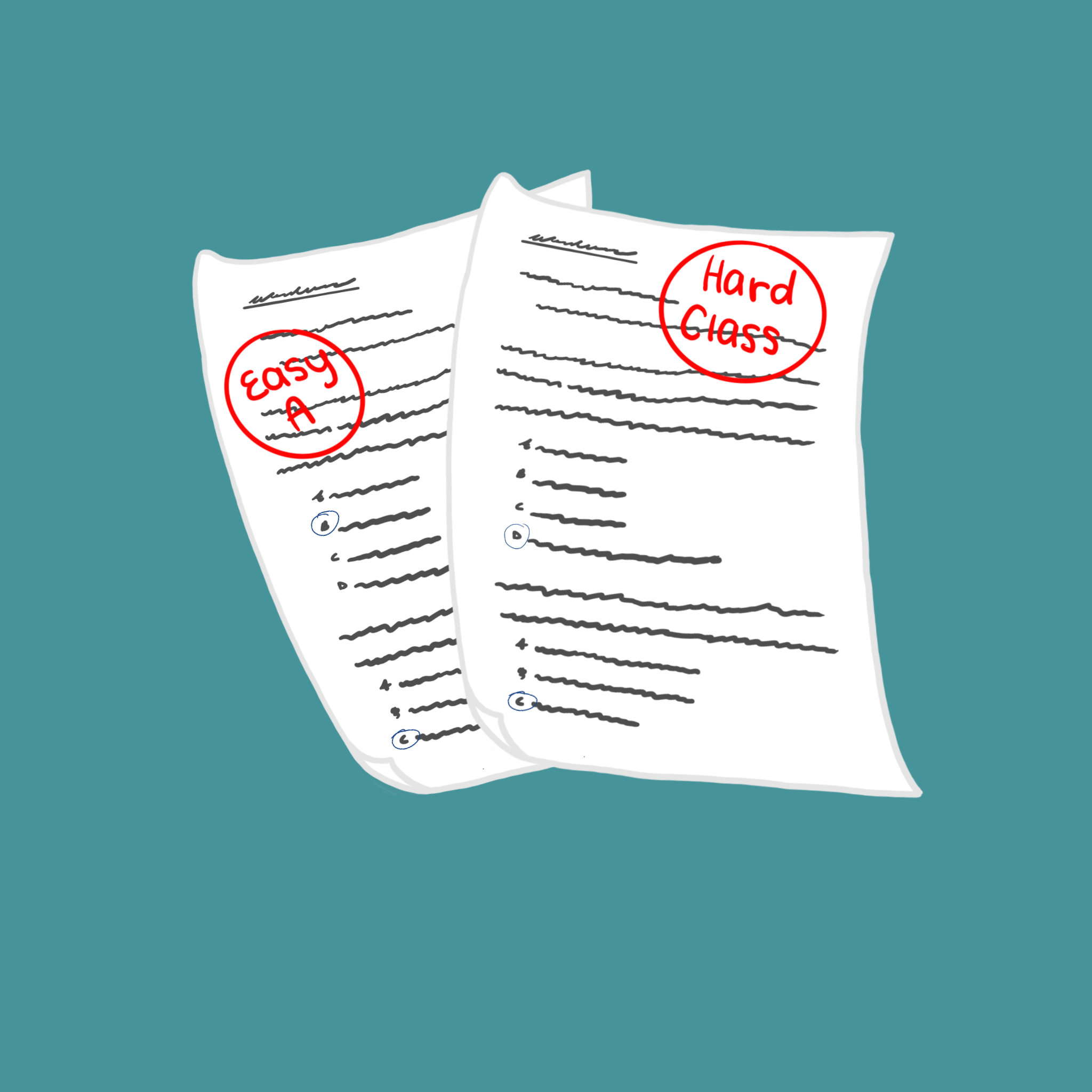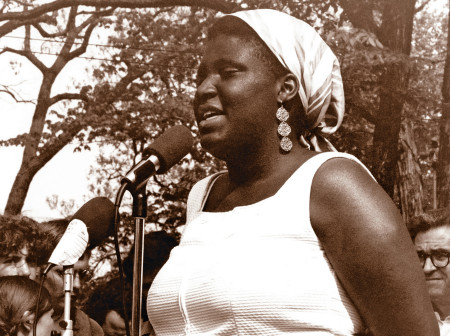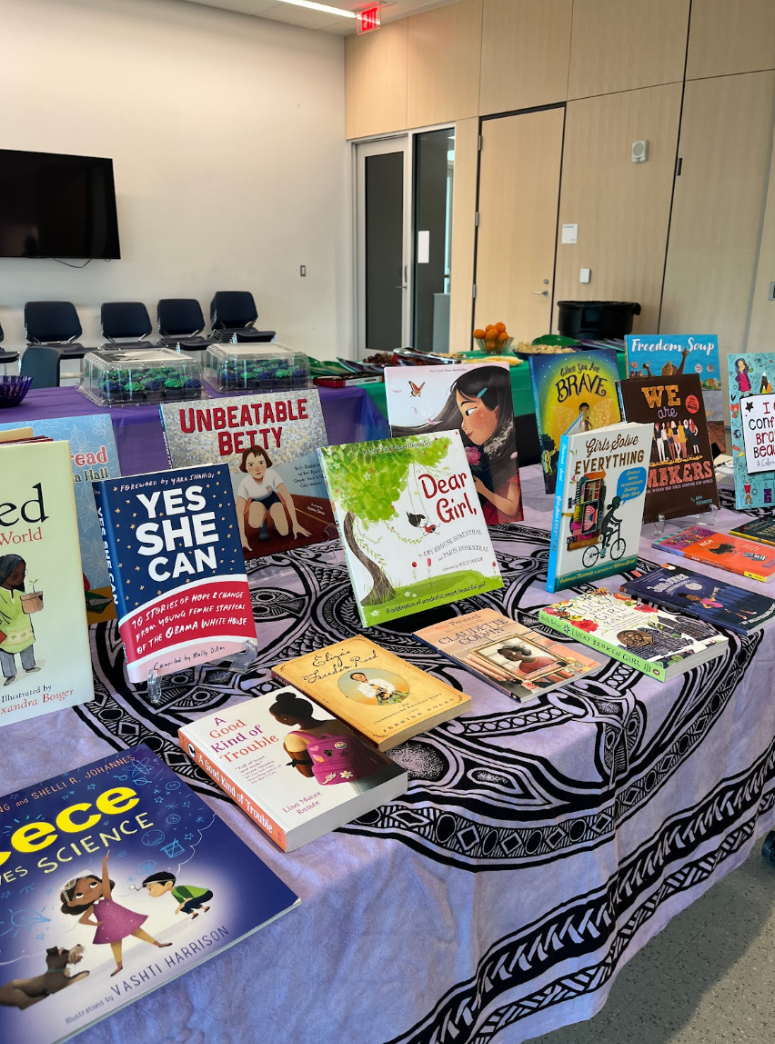
When Eva Paterson, Weinberg ‘71, arrived at her triple room in Willard Hall for her first year of college, her roommate took one look at her and walked out. The roommate stayed in a hotel that night then transferred to a single dorm room for the rest of the year — all to avoid living with a Black roommate.
This was the beginning of Paterson’s college experience. Over the next four years at Northwestern, she became more conscious of racial discrimination, advocated against the Vietnam War and became a prominent student activist.
Now, 75-year-old Paterson has won more than 50 awards for her work advocating for social justice. While she officially retired three years ago, actions by the Trump administration have motivated her to stay busy. The Northwestern grad – and first African American student government president – began her activism journey in college.
“I learned you don’t do what the president said just because he said it,” Paterson said. “I learned that leaders can lie to you. I learned that you can take action that’s scary, like taking over a building or marching on Washington.”
Paterson co-founded the Equal Justice Society, a California-based nonprofit that uses legal strategy and social science to racial discrimination. She served as its president from its inception in 2000 until her retirement in 2022. Paterson gained fame from leading student protests during her college years and debating Spiro Agnew about the Vietnam War while he served as vice president for Richard Nixon.
Amid the midterm elections of 2022, Paterson channeled her fear of Republicans winning control of Congress by forming an organization called the Aunties Coalition with other women committed to preserving democracy. She sends a daily digest to women around the country, informing them on current events such as new developments of the Trump administration or upcoming protests.
“The whole idea is to let people know what’s going on and also let people know how to fight back,” Paterson explained about these advocacy efforts.
She is also part of the effort to urge Northwestern President Michael Schill and the Board of Trustees to resist Trump’s attacks on higher education. On May 19, The Daily Northwestern published an op-ed by Paterson and four other of the students who occupied the bursar’s office in 1968. The members of the B100 – the name given to the students who participated in the building takeover – called on the school to stand up for itself and defend academic freedom.
“Our actions at Northwestern in 1968 mirrored the broader Civil Rights Movement and led to tangible change,” the authors wrote in their article. “Just as the Civil Rights Movement challenged racial injustice and systemic oppression, Northwestern’s students and activists paved the way for equity within our own institution. The fight is not over. The lessons of past generations must guide us now.”
Paterson, who grew up in a predominantly white community, said she became more aware of racial issues when she got to college, was around more Black students and joined the organization For Members Only. She participated in the 1968 takeover of the bursar’s office, in which Black students protested against racist discrimination at the University. After 38 hours, they reached an agreement with the administration which revised financial aid and housing policies and introduced a Black Studies program.
Beyond activism for racial justice, she also participated in the anti-war movement during college. She grew up in a military family and her father served in the Vietnam War, so she entered college supporting the United States’ actions.
However, her opinion changed when she was exposed to other viewpoints in college and when leaders like Martin Luther King Jr. and Robert F. Kennedy came out against the war. She was tear-gassed when she marched in Washington in the Moratorium to End the War in Vietnam.
She said she sees echoes of the past in student protests today.
“When you’re young, you have the ability to be idealistic,” she said. “You also don’t have to work 40-hour work weeks, so you have time to participate in activities. And I think you’re more likely to take risks.”
Paterson said her first priority in retirement is taking care of herself. But amid political turmoil, she still works to fight for change and justice — alongside some of the people she met at Northwestern.
“You’re leaving home for the first time, you’re being on your own, you’re figuring out who you are,” Paterson said about her time in college. “You’re learning that the way you were as a kid isn’t the way you want to be.”
As she continues her work into retirement, Paterson keeps an upbeat outlook on the future.
“I’m part of a positive movement that knows that, while we’re going through hard times, we’ll get through this – this administration will be an ugly memory,” Paterson said. “I’m part of movements that are filled with optimism and joy.”



